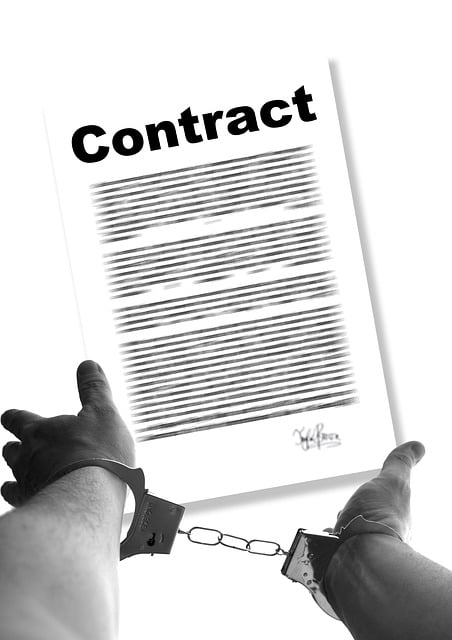Liability insurance is a crucial safety net for individuals and businesses, shielding them from financial losses due to negligence or damage caused to others. It covers legal fees, medical expenses, and compensation for injuries or property damage. Choosing the right policy involves assessing specific risks, historical claims data, and desired coverage levels. The cost varies based on industry, risk factors, claims history, and desired protection. To obtain affordable liability insurance, compare rates from multiple insurers, consider your credit score and claims history, and review policy details carefully to avoid exclusions. Adequate liability insurance provides peace of mind, prevents financial ruin, and encourages responsible behavior, ultimately fostering safety and accountability in various industries.
“Liability insurance is a crucial safety net for businesses, safeguarding against unforeseen legal repercussions and financial losses. This comprehensive guide aims to demystify liability insurance, offering a detailed overview for entrepreneurs and business owners. We’ll explore why it’s an indispensable asset, delve into various policy types, and uncover factors influencing costs.
From navigating quotes to avoiding common pitfalls, this article provides practical insights. Learn about the benefits of adequate coverage through real-world case studies, empowering you to make informed decisions regarding your business’ protection.”
Understanding Liability Insurance: A Comprehensive Overview

Liability insurance is a crucial safety net for individuals and businesses, protecting them from potential financial losses due to claims of negligence or damage caused to others. It covers legal fees and compensation if someone is injured on your premises or because of your actions. Understanding this type of insurance involves grasping key concepts like policy limits, coverage types (general liability, professional liability, etc.), and deductibles.
Policyholders must assess their specific risks, such as the nature of their business activities, potential hazards, and historical claims data, to choose an appropriate liability insurance policy. A comprehensive policy ensures that you’re protected against various liabilities, offering peace of mind and financial security in case of unforeseen incidents.
Why Is Liability Insurance Necessary for Businesses?

Liability insurance is a crucial component of any business’s risk management strategy. It shields owners from potential financial losses and legal liabilities that may arise from customer injuries, property damage, or other claims. In today’s competitive landscape, where businesses face increasing legal risks and consumer expectations, having adequate liability coverage is essential for survival and sustainability.
Without liability insurance, a single incident could cripple a business. Medical malpractice, product liability, and premises liability are just a few examples of claims that can lead to substantial settlements or judgments. These costs can far exceed a small business’s resources, threatening its viability. Liability insurance provides a safety net, offering financial protection against these unexpected events, allowing businesses to focus on growth and success rather than worry about potential financial devastations.
Types of Liability Insurance Policies Available

Liability insurance is a safety net that protects individuals and businesses from financial loss due to negligence or accidental harm caused to others. There are several types of liability insurance policies available, each designed to cater to specific needs. One of the most common is general liability insurance, which covers a wide range of risks for businesses, including medical expenses, legal fees, and compensation for damage to property or personal injury. This policy is crucial for small businesses as it offers comprehensive protection against various claims.
Another type is professional liability insurance, often referred to as errors and omissions (E&O) coverage. It is essential for professionals like doctors, lawyers, and accountants as it protects them from financial loss arising from negligence or mistakes in their work. Specialized policies also exist for specific industries such as construction, which has unique risks due to the nature of its operations, requiring tailored liability insurance to cover potential accidents and damages during building projects.
Factors Affecting the Cost of Liability Insurance

The cost of liability insurance is influenced by several key factors, which can vary depending on the individual or business seeking coverage. One of the primary considerations is the type of industry and the associated risks involved. For instance, professions with a higher potential for physical harm or property damage, such as construction or healthcare, often face more stringent requirements and consequently, higher insurance premiums. Similarly, businesses dealing with hazardous materials or engaging in high-risk activities may encounter elevated rates due to increased liability exposure.
Another significant factor is the insured’s personal or corporate history. Insurance companies thoroughly review claims records and past liabilities before offering policies. A clean record generally translates to more affordable rates, as the insurer perceives a lower risk. Conversely, a history of frequent claims or significant settlements can lead to higher costs, as underwriters may view such applicants as more financially risky. Additionally, the level of coverage desired plays a role; opting for broader protection or higher limits will typically increase the overall cost of liability insurance.
How to Get Affordable Liability Insurance Quotes

Getting affordable liability insurance quotes involves a few strategic steps. First, identify your needs and risk level by evaluating the types of liability coverage required for your situation. General liability insurance is often a good starting point, protecting against common risks like accidents on your property or injuries to visitors. Next, compare rates from multiple insurers using online platforms or consulting with brokers who specialize in liability insurance. This allows you to see different pricing structures and policy options side by side.
Additionally, consider your credit score and claims history since these factors can significantly impact premiums. A clean driving record and good credit usually lead to lower rates. Don’t be afraid to shop around; insurance companies often have different promotions and discounts that could further reduce costs. Finally, review the fine print and understand what’s covered and excluded in each quote to ensure you’re getting adequate protection at a price that fits your budget.
Common Mistakes to Avoid When Purchasing Liability Insurance

When purchasing liability insurance, several common mistakes can lead to inadequate coverage or costly surprises down the line. One of the biggest blunders is assuming that all policies are created equal. Liability insurance comes in various forms and sizes, catering to different needs and risk levels. Neglecting to assess your specific situation, including the nature of your business and potential exposure to claims, can result in gaps in coverage. For instance, a contractor might require general liability but also need professional liability if offering specialized services.
Another mistake is solely focusing on the price tag. While affordability is essential, skimping on coverage limits could leave you vulnerable. Insurers offer different levels of protection, and selecting the most basic option may not be sufficient to cover significant claims. It’s crucial to understand the policy’s terms, exclusions, and conditions. Misunderstanding these can lead to unexpected denials or insufficient compensation during a claim. Always read the fine print and clarify any doubts with your insurer.
Benefits of Carrying Adequate Liability Coverage

Liability insurance is a crucial safety net for individuals and businesses, offering protection against potential financial losses due to unforeseen events or accidents. One of the primary benefits is peace of mind, knowing that should an incident occur, you’re not solely responsible for the associated costs. This coverage can help manage medical expenses, legal fees, and damages in case of a claim.
Adequate liability coverage can save individuals and businesses from financial ruin by ensuring they have the resources to settle claims promptly. It also encourages responsible behavior as policyholders are more likely to take precautions and avoid risky situations knowing they’re insured. This results in a safer environment for everyone, reducing the likelihood of incidents that could lead to costly liabilities.
Case Studies: Real-World Examples of Liability Insurance in Action

Liability insurance, a cornerstone of risk management, has been in action across various industries and scenarios, offering protection against financial losses due to claims of bodily injury or property damage. Case studies from real-world examples paint a vivid picture of its impact and necessity. For instance, consider a retail store that faces multiple slip-and-fall incidents. Without liability insurance, these accidents could lead to substantial legal bills and damages paid out to injured customers. However, with adequate coverage, the store can navigate these issues without bankrupting itself, ensuring customer safety while maintaining financial stability.
Another scenario involves a construction company. During a project, a worker sustains serious injuries on-site. Liability insurance steps in to cover medical expenses and potential legal costs arising from the incident. This not only protects the company’s financial health but also enables it to maintain its reputation by demonstrating responsibility and care for its employees’ well-being. These real-life examples underscore the vital role liability insurance plays in safeguarding businesses against unforeseen events, fostering a culture of safety and accountability.
